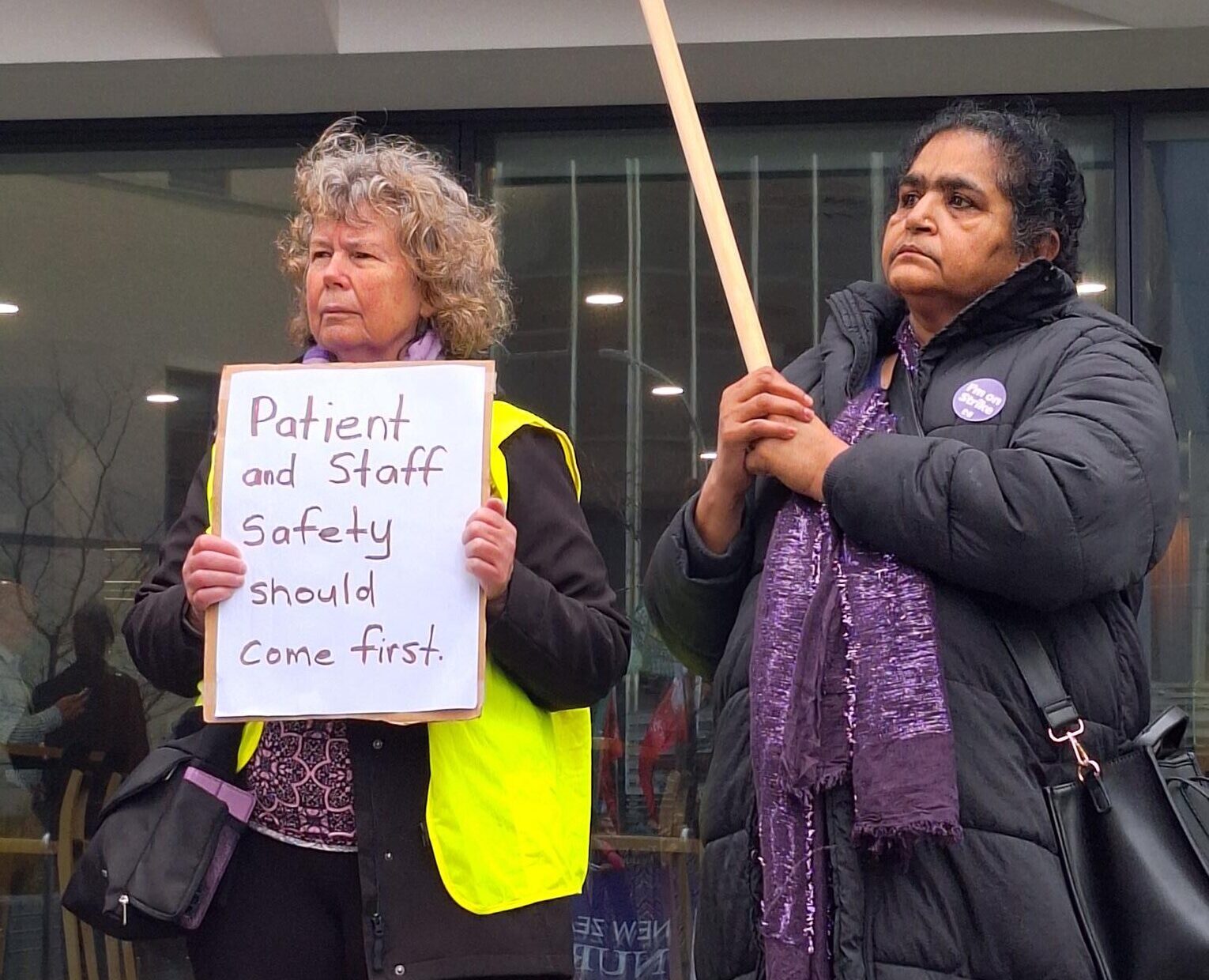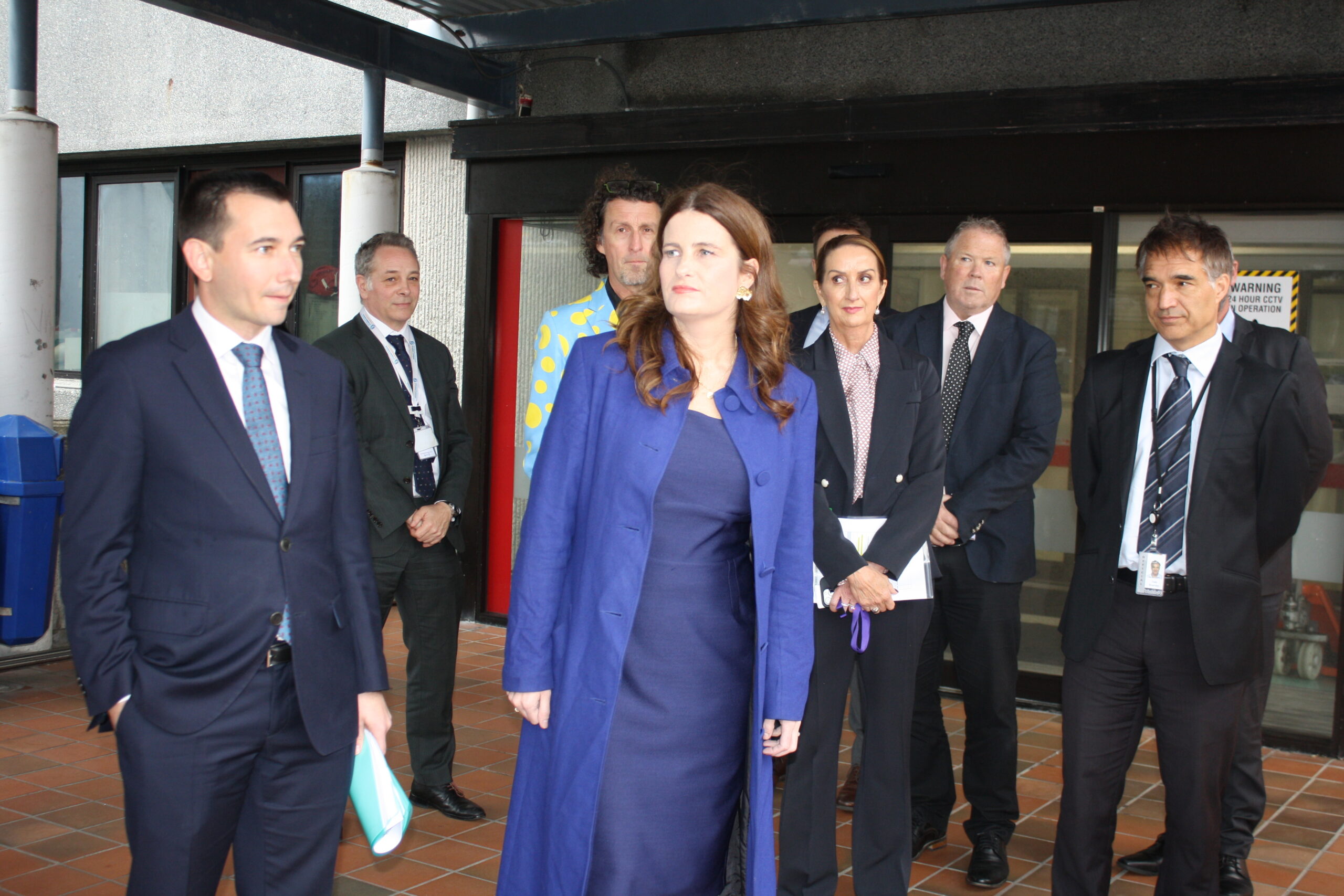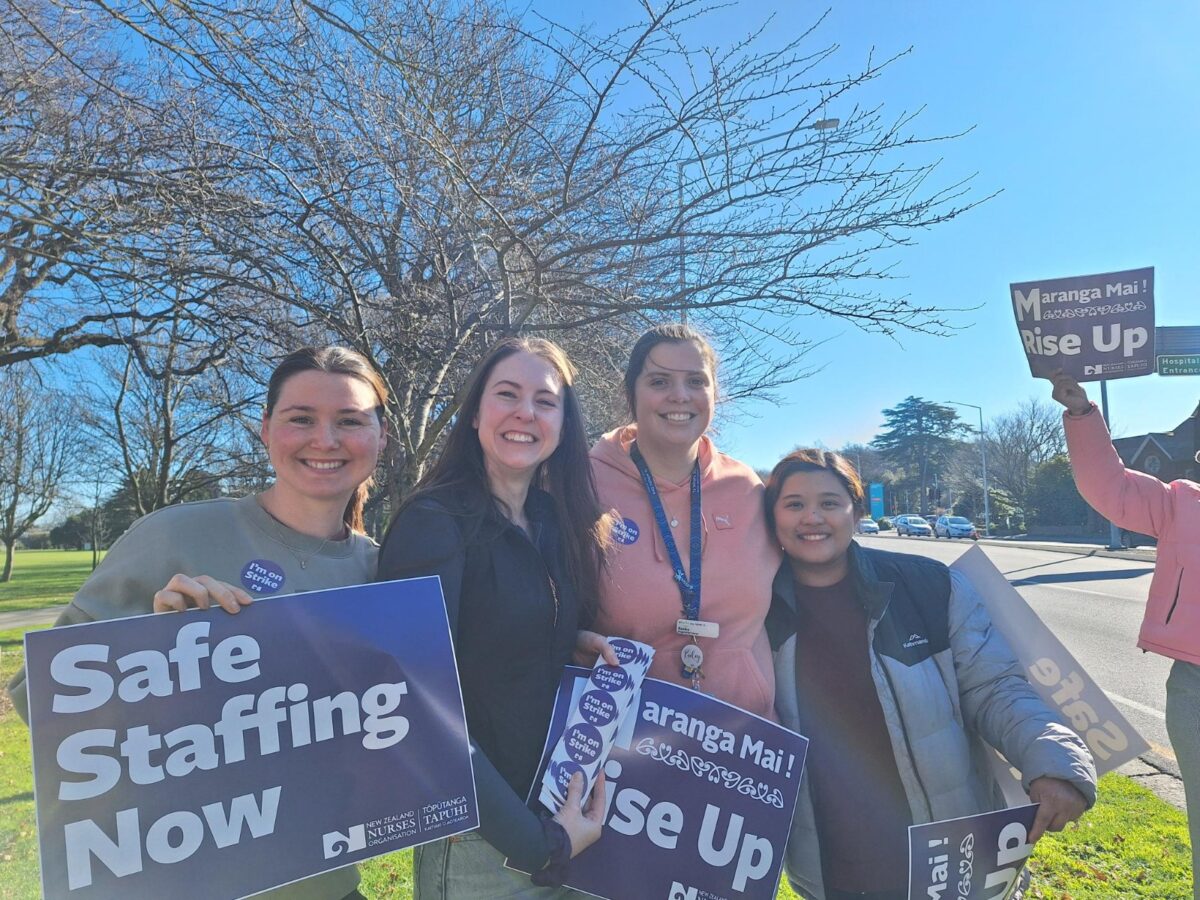Strikes popping up all over
Several more local actions are also planned from this week. From today, a week-long “t-shirt strike” is taking place in Waitematā over district nursing shortages.
A “redeployment strike” also begins today, meaning nursing staff at Auckland City Hospital cardiothoracic and vascular intensive care, along with Whangārei Hospital acute surgical services, will not plug gaps in short-staffed areas outside their specialties.
Te Whatu Ora chief executive Dale Bramley last week publicly criticised NZNO over comments made by a member in a closed Facebook group the last-minute cancellation of last Wednesday’s strike was a deliberate strategy to “create chaos”.
But Christchurch Hospital delegate Gayl Marryatt, speaking from the picket line on Friday said that was not the case.
‘Nurses are going home in tears because they can’t provide the care patients need.’
Delegates across radiology, perioperative and post-anaesthesia care unit (PACU) had only decided to cancel at the last minute because management had ruled out about 70 members from taking action. They were told their names weren’t spelt correctly, had been missed off or they hadn’t updated their area of work.
“Due to the wording of the strike notice, not all the names matched up with their rosters,” Marryatt told Kaitiaki. Some internationally-qualified nurses used English names, for example. As a result, she said management barred them from striking — a decision delegates felt was heavy-handed.
“It wasn’t a planned thing – we felt it was in the best interest of members to cancel the strike,” she said. “We wouldn’t do that to the public or our members – it was very disappointing as we’d put a lot of work into it.”

About 180 Christchurch radiology, perioperative and PACU staff had gone ahead with a second planned strike Friday over unsafe staffing — a picket which had drawn huge public and collegial support, she said.
‘We wouldn’t do that to the public or our members – it was very disappointing as we’d put a lot of work into it.’
Lack of staff was a huge issue for everyone in PACU, theatre and radiology constantly juggling shifts and leave – but even worse on the wards, she said.
“Nurses are going home in tears because they can’t provide the care patients need.”
Marryatt described Te Whatu Ora’s rebuke as “disappointing”.
Member’s ‘passion’ to blame
The ruckus erupted after a year of bargaining that dragged on, during which NZNO nurses, midwives and health-care assistants (HCAs) have been on rolling strikes, a 24-hour strike — and have now voted for a two-day strike in September.
Patience is wearing thin.
So when an “enthusiastic” NZNO Te Whatu Ora member posted on a closed Facebook group that a last-minute cancellation of planned Canterbury perioperative and radiology staff strike action on Wednesday was a deliberate and “bloody beautiful” strategy, Te Whatu Ora hit back.
Bramley publicly released a letter to chief executive Paul Goulter criticising NZNO and demanding an explanation for the last-minute cancellation which he said impacted 85 Cantabrians.
‘Until Te Whatu Ora is prepared to change their position, member frustration and upset at the risk to patient safety will continue.’
“I seek your urgent confirmation that this is not a deliberate tactic and your undertaking that this will not happen again.”

‘Passionate’ members
In response, Goulter defended the member as passionate and “enthusiastic”.
“It is indicative of the depth of feeling our members have about their concerns which haven’t been addressed by Te Whatu Ora through collective agreement bargaining.”
Goulter said the strikes were over Te Whatu Ora’s ongoing failure to safely staff PACU and perioperative and radiology facilities.
“Until Te Whatu Ora is prepared to change their position, member frustration and upset at the risk to patient safety will continue.”
Silencing tactic?
Meanwhile, NZNO president Anne Daniels is urging nurses and kaiāwhina not to be silenced by the rebuke.
“They want us to be quiet and this is an absolute form of oppression,” she told Kaitiaki. “It is the deliberate silencing of nurses.”

On her own Facebook page, Daniels also questioned how posts from a closed member-only Facebook page, where members can “speak freely, offer opinion and debate in a place where they thought they were safe to do so” were made public by Te Whatu Ora.
Minister ‘furious’
A “furious” Minister of Health Simeon Brown also took a swing at NZNO, accusing it of “playing politics”.
“While union members walked back into work and collected a full day’s pay, those patients lost the care they desperately needed,” he told a hastily-called media conference last week, RNZ reported.
“This is, quite frankly, playing politics with people’s lives and it makes me furious. We value our nurses and the vital care that they provide.”

Challenged by journalists that it was simply one person’s opinion in a private group, Brown said he believed the comments.
Both called on NZNO to withdraw September strike action.
At a glance:
NZNO members last week voted for two more days of strike action from September 1, following nationwide 24-hour strike action on July 30-31.
A desire for long-term safer staffing for patients is core to NZNO’s bargaining claims, after data showed 56 per cent of all day shifts in surgical wards across 16 districts were understaffed last year.
Other sticking points include jobs for new graduates, senior nurses’ pay and cost-of-living pay rises.
New nursing graduates, and 2024 graduates, are facing a job shortage in hospitals — only 45 per cent matched with work in the mid-year advanced choice of employment (ACE) programme.





